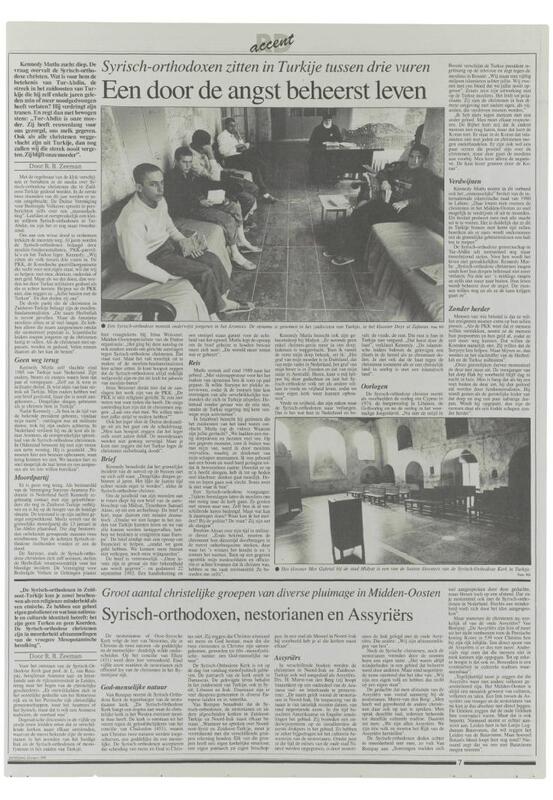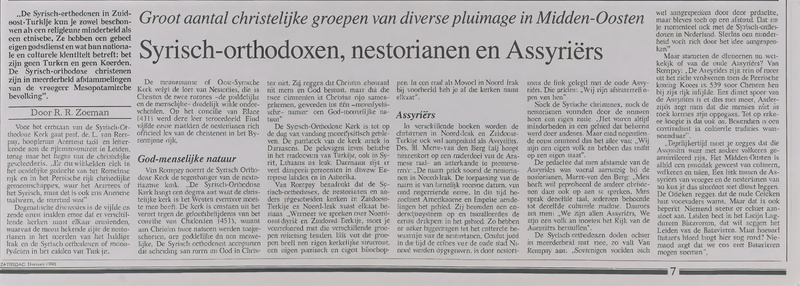-
Title
-
Syrisch-orthodoxen, nestorianen en Assyriërs
-
Creator
-
R. R. Zeeman
-
Date
-
1993
-
Description
-
According to this 1993 interview in Reformatorisch Dagblad, Prof. L. van Rompay (Leiden) explains that the Syriac Orthodox in southeast Turkey can be seen both as a religious and an ethnic minority: they have their own church and a distinct national-cultural identity, neither Turkish nor Kurdish, and are largely descended from the old populations of Mesopotamia. He sketches the late-antique church landscape in which Aramaic/Syriac-speaking communities formed on both the Roman and Persian sides. Christological disputes in the fifth–sixth centuries produced parallel traditions: the East-Syrian/Nestorian Church in the north of present-day Iraq and the Syriac Orthodox (often called “Monophysites”) in what is now southern Turkey. The Nestorian Church emphasized a clear distinction of Christ’s two natures and was condemned at Ephesus (431). The Syriac Orthodox tradition arose from resistance to Chalcedon (451), affirming one united divine-human nature; its patriarch later settled in Damascus, with communities across Turkey, Syria, Lebanon, Iraq, Europe, and the Americas.
Dr. Heleen Murre-van den Berg adds that the label “Assyrians” for Christians of northern Iraq and southeast Turkey applies mainly to the Nestorians/East Syrians and is of fairly recent origin, dating from the late nineteenth century. American and British missionaries built schools and introduced the first printing press, fostering cultural consciousness. At the same time, excavations of ancient Nineveh encouraged some Nestorians to link themselves to the ancient Assyrians and to articulate a national program (“we are one people; we should restore the Assyrian kingdom”). Syriac Orthodox Christians largely kept their distance from this project. Van Rompay concludes that while cultural continuities with ancient Mesopotamia exist, the Assyrians of antiquity were assimilated into many peoples over time; therefore no direct line can be drawn from the ancient Assyrians to today’s Nestorians, even if modern groups adopt the Assyrian name in a symbolic sense.
-
Language
-
Dutch
-
Publisher
-
Reformatorisch Dagblad
-
Subject
-
Syriac Christians & Nestorians




